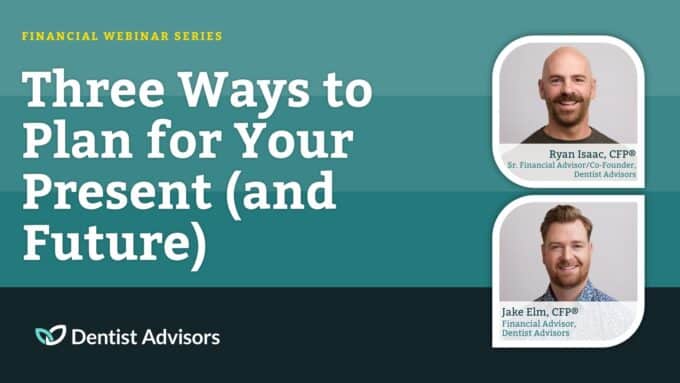“New car, caviar, four-star daydream, think I’ll buy me a football team. I’m in the high-fidelity, first-class traveling set and I think I need a Lear jet.”
You might recognize these Pink Floyd, Roger Waters lyrics. He wrote “Money” in 1973 as part of the album The Dark Side of the Moon (45 million copies sold and counting).
Whether you like Pink Floyd or not, as a dentist and a top earner, you may be able to relate somewhat to these lyrics. But be warned, the more you earn the more complicated your financial picture becomes. As the late Notorious B.I.G. reminds us, “Mo money, mo problems” (OK, I’m finished quoting lyrics).
And the Survey Says …
In 2011, BBC Labs partnered with professors from several universities to conduct research on the relationship between people and money.1 Surveys of 109,472 people were compiled, making it one of the most extensive surveys ever issued on this subject.
For me, the most compelling insight came from the list of the common emotions people associate with money. Respondents said when they think of money they feel (in this order): “anxiety, depression, anger, helplessness, happiness, excitement, envy, resentment.”1
I smiled when I read that list because it reads close to how a lot of people feel when they go to the dentist … anxiety, depression, helplessness.
Joking aside, just consider for a minute how money is such an emotionally complex subject. Read the list again. That’s quite a range of emotions. And when it comes to money, you’ve probably experienced some of those same feelings—from anxiety and anger to excitement and happiness.
Before founding Dentist Advisors and narrowing my professional focus to dentists, I spent several years working with a cross-section of wealthy individuals. I found that the emotions listed in the survey are common to many people, but I’ve seen them at an exaggerated level among dentists. After working with dentists for so many years now, I attribute this more noticeable struggle with money to several notable factors.
#1: You’re a Very High Achiever
You’ve been motivated to accomplish something of great importance to you … and to others. Your ability to succeed at demanding tasks is what it took to get into dental school and pass your boards.
Since you’ve lived through a process that makes you acutely aware of your competition, you also tend to be more conscious of the success of your peers. Have you looked at a friend’s practice, car, house, or vacations and thought, “Wow, they must be doing well?” I worry that many dentists equate nice cars, vacations, and houses with being wealthy, which can result in more pressure to compete with others by spending like they do.
#2: You Delay Income
The friends you grew up with started making money while you were stuck in school. You were living on student loans (going backwards) with significant financial pressure, while your non-dentist friends were getting jobs, enjoying some money, and getting a few toys.
You’ve obtained more education but you’ve also created a pent-up demand for spending and improving your quality of life quickly. Rather than slowly improving their lifestyle, many dentists just want it all, and they want it now.
#3: You Experience a Sudden Boost of Significant Income
Despite what most dentists would report, they really don’t experience a gradual climb from below-average to average to above-average income. Instead, they start at above-average and grow to well-above-average.
The psychology is not that different from professional athletes who go from making $50k to $60k in the minors or G-league to six-figure or multimillion-dollar salaries in the pros. And there are too many stories about how successful athletes end up broke because they’ve overspent their new riches.
#4: You Got a DDS Not an MBA
Another reason for the various emotions you may feel about money is that you don’t have a deep financial background or experience with finances, budgeting, or business. And yet your career demands that you be able to manage all of these different areas of a small business. It’s unrealistic when you think about it.
MBA students go to school for two years to become experts on finance and business strategy. In fact, they narrow their focus even further by pursuing a specialized track such as marketing or supply chain management because they know it’s difficult to be competent in all areas. But dentists are expected to just figure out all areas of business, without a business degree.
#5: You’ll Need More to Retire
Everyone gets used to spending more as they make more, and you’re no exception. Your above-average income gives you a huge opportunity to achieve extraordinary wealth. But a high income can make it even harder to retire successfully. Why? People are happy with their retirement when they maintain or increase their standard of living. They’re dissatisfied when their standard of living declines.
Your lifestyle expenses steadily increase over time, and consequently, you need more for retirement than many of your peers in order to feel like you aren’t downgrading your life when you hang up the drill.
No wonder dentists can have such different emotions when it comes to managing their wealth. It’s a huge challenge.
Conclusion—You’re Sitting Pretty
Fortunately, in the same study, I cited above, the research revealed that financial success is more of a personal problem than it is a financial problem. With one of the highest average incomes in the world, dentists have an amazing financial canvas to work with. There are very few restrictions that cannot be overcome. The big trick is to adopt and then stick with a set of habits that prevent you from becoming a victim of your own fortunate circumstances.
This article has been updated from an earlier version that was published by Dentistry iQ in April 2016
The Big Money Test - results. BBC Lab UK website. http://www.bbc.co.uk/science/0/21360144. Published March 14, 2013. Accessed February 1, 2016.




